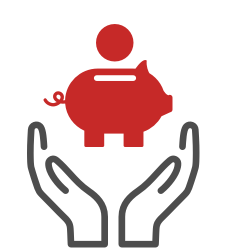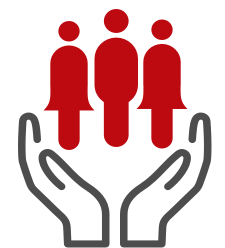Here the 2017 social report
2017 Report
Complementary notes of 2017 Report
2017 Report Certification
Analysis of the 2017 Report
CEFA presented his social report at the Town Hall of Bologna on Wednesday 20th June at 16.30 in the Sala Tassinari.
This year the topic was gender equality with the title Woman, present time.
At the start, the assessor Marco Lombardo pointed out the importance of the reception for a city like Bologna, that even if it is not a coastal city and does not have harbours, it owns arches. The arches of Bologna are a very symbolic element with a strong identity that suggests protection and reception.
To discuss the topic of gender parity further, Francesca Romanelli, a journalist for RAI network, conducted the debate: Woman subject of development. At the roundtable four gender experts have participated. Romanelli reported the data of the 2018 Report of ILO (International Labour Organization) according to which “in Africa the 85,8% of the work is informal and women are more exposed to it, in low-and-middle income countries. Agriculture, the main policy area of CEFA, is strictly a male area in many countries in the South. From here the reflection on one of the main Cefa’s goals, i.e. women’s inclusion, because they are always involved in agriculture, but in informal working, therefore underpaid and in insecure conditions.
Consideration taken up again from the anthropologist Francesca Crivellaro who remarked that gender equality is in fact a crosscutting theme, which relates to every areas of intervention. That is why for the anthropologist is important to “include the cross-section of gender in every of the phases of the project’s construction, from the implementation to the supervision. You should pay attention when you plan action in such a context like the one of the migrants coming back home” says the anthropologist for example, “in which you should respond to the different needs of women and men properly. Even if women are invisible, they play a decisive role in agriculture; we need to increase the consciousness and the receptivity to this topic.”
Then Vilma Mazza, journalist and president of the association Ya Basta Padova, took the floor. She mentioned the initiatives linked to the project Donne Attive, in collaboration with the project MaTerre coordinated by CEFA, started in Tunisia. Mazza talked about topics like “new technologies and use of social media for the promotion of the region. They are both sectors in which young women master the tools and bring added value through their creativity”. Then she talked about the central role of the development of a sustainable tourism and minimally invasive, based on the valorisation of local resources, and how it is important to sustain a decisive role of women in this area, essential piece for the progress of the democracy. Moreover, she reiterated the conviction whereby “women can be leaders of the routes that bring benefits to the whole community, if we invest on them. Provide new opportunities, education and encouragements is vital, and these are exactly the measures that underpin projects like Donne Attive and MaTerre”.
Rguig Badia, the developer and trainer for the immigration, of Moroccan origin and since ’93 in Italy, talked about the daily challenges for the integration in Italy. “In Bologna I deal with supporting and assisting Moroccan women. Indeed almost the 60% of the women that comes in Italy are devoid of any primary education. For this reason I organized alphabetisation courses not only in Italian but also and especially in Arabic”. She talked about the challenge for the emancipation of women, about the reform started in Morocco for the safeguard of their rights, even if they are not yet sufficient. Then reporting her personal experience, she explained how is still hard for her to shake off the status of “stranger”.
Finally Patrizia Farolini conclude the debate, CEFA’s President, presenting the social report. The news of the year concern women, for which they tried to collect numbers of women involved in different projects and of which they were beneficiaries. Farolini admit the difficulties of making women protagonist in rural contexts. We need to create spaces for inclusion and to plan moment in which women, pillars of the entire community, can participate in decisions and take part to the development programs. For this reason she mentioned the project of the aqueduct in Kiirua, with the introduction of quotas for women and for young people, for women’s inclusion in the Management Committee for water and for young people who represent new generations that can provide continuity to this project. “To launch cooperation programs for CEFA means to walk next to women, to understand the fragility of these cultures and to offer potential of changes”.

